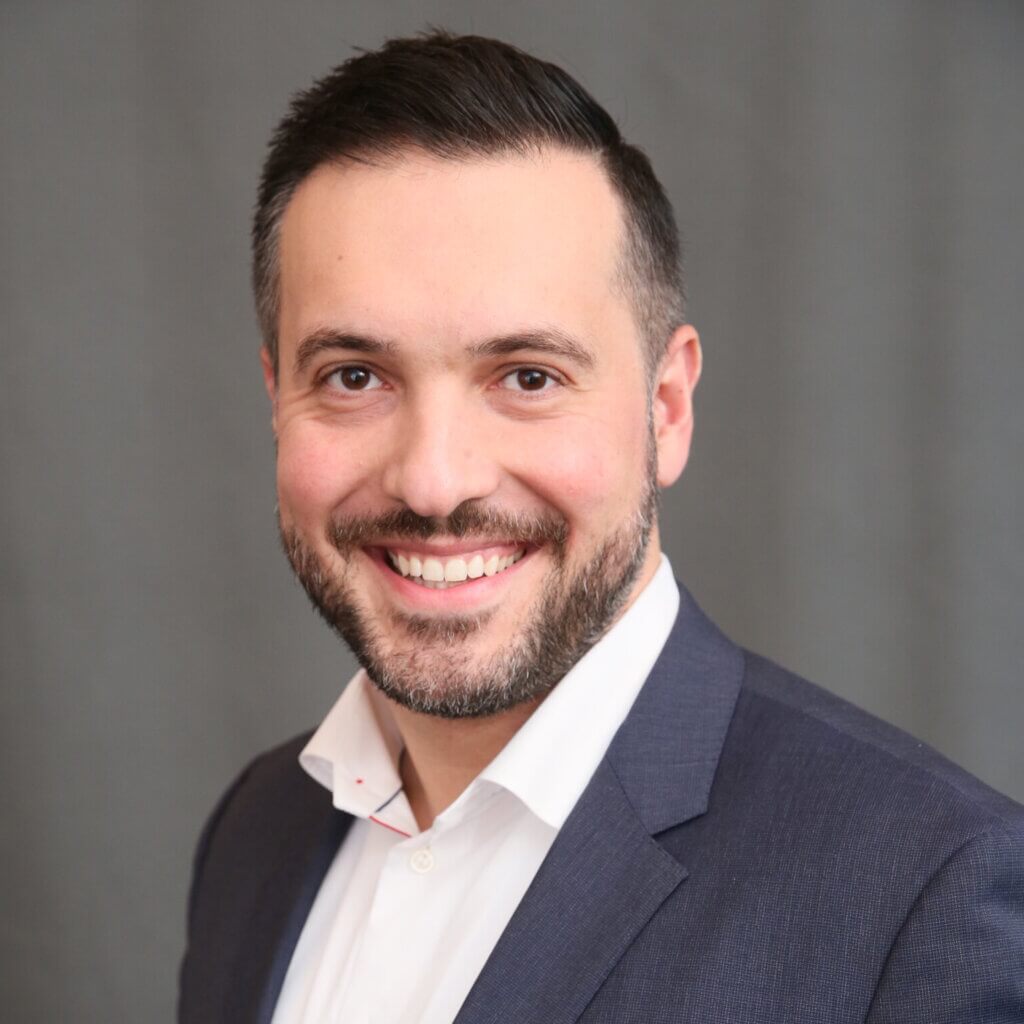Article 4: Rising Regulation
In the last of a four-part series exploring the the main challenges facing US private equity players in a constantly evolving marketplace, Alter Domus looks at how working alongside fund services partners can help managers to stay on top of these additional regulatory demands.

The private capital industry has undergone a period of remarkable expansion during the last decade, with assets under management growing at a compound annual growth rate of 14 percent in the ten years between 2013 and 2023 to reach US$14.5 trillion.
As more capital has flowed into private markets, regulatory scrutiny of the asset class has inevitably followed (particularly given the industry’s focus on growing its non-institutional investor base), culminating with the US Securities Exchange Commission (SEC) adopting new rules in 2023 to strengthen regulatory oversight of private funds managers.
The rules, which run to more than 600 pages of text, represent the most significant overhaul private markets regulation in the US since the 2008 global financial crisis, and will place significant additional disclosure and reporting costs on managers.
The rules are only set to come into force beginning in September 2024, and a group of private markets managers have mounted a legal challenge against the SEC rules, which if successful could oblige the SEC to review its plans.
But as things stand some of the main reporting and disclosure requirements the industry will have to be ready for include:
1. Mandatory Quarterly Reporting
With the aim of improving transparency, the SEC will require registered private fund advisers to provide quarterly statements to investors with detailed information on fund fees, expenses and performance.
2. Annual financial statements and audit
The new rules will also require private fund advisers to produce and distribute and annual financial statement and audit for each private fund they advise.
3. Fairness opinions on GP-led deals
Managers undertaking GP-led secondaries transactions will be required to obtain independent, third-party fairness opinions on deal valuations.
4. Preferential treatment
The new rules will also prevent private fund advisers from providing any investors with preferential treatment regarding redemptions and information that would have a negative impact on other investors.
In all other case of preferential treatment, the SEC has adopted a “disclosure-based exception to the proposed prohibition”, that will include “a requirement to provide certain specified disclosure regarding preferential terms to all current and prospective investors”.
This could have serious implications for the use of side letters (which grant specific rights to certain investors), which have become more and more prevalent across the industry.
5. Restricted activities
The rules will also restrict any activity that is against the public interest or compromises the protection of investors, and private fund advisers will not be allowed to charge investigation costs to funds when sanctioned for violation of the Investment Advisers Act.
Counting the cost
Compliance with the new rules is expected to be costly, with managers not only having to produce additional reporting and disclosure, but also track potentially hundreds of side letters and make disclosures on these side letters to all other investors.
The FT reports that as part of its rulemaking process the SEC estimated that meeting the annual audit statement and quarterly reporting requirements could cost the asset class up to US$961 million a year, with rules and disclosure around fee costs and preferential treatment a further US$938 million of costs.
Implementation will be complicated even for large managers that already have sizeable back-office infrastructure in place. For smaller players the investment in additional general counsel, compliance and reporting resource the poses an even bigger challenge.
Help at hand
Managers, however, do not have to shoulder additional reporting and disclosure requirements alone, and can turn fund servicing partners with the size, experience and technology to handle additional regulatory obligations efficiently and cost-effectively.
Alter Domus, for example, has a range of technology, AI and automation tools at its disposal to help clients meet their obligations without incurring significantly higher costs or having to divert investment from the front office functions to bulk out the back-office.
Managers and funds will already have much of the data regulators are asking for to hand. The help of a partner that understands what data is required, how to collate it and structure the data into a coherent format can remove much of the heavy lifting and the pain points that managers would face if operating in isolation.
Alter Domus is already building out a new service offering to support clients on the regulatory front, which will be available to market before the new SEC rules come into force.
The fact that Alter Domus can service hundreds of clients through its platform – as a opposed to one manager having to build all this capability in-house just to service its own funds – also allows it to leverage its infrastructure at scale and materially bring down regulatory compliance costs for its clients.
Alter Domus also has significant experience operating in other jurisdictions, such as Europe, where regulatory regimes for private markets have been more demand, and is well versed in servicing complex fund structures – an especially valuable skill set when it comes to tracking and coordinating any preferential disclosure requirements that may be required.
The new SEC rules undoubtedly represent a step change in regulatory load managers have to carry. Partnering with a responsive fund services provider, who has a birds-eye view of the industry, can help teams to meet the rising tide of compliance and regulatory demands without compromising their focus on the core business of sourcing deals and delivering returns.

Article 3: Fit for fundraising
Investment returns will always be the primary focus for LPs when choosing which managers to allocate capital to, but as the private markets industry matures, and manager selection becomes more sophisticated, operational infrastructure and organizational resilience have become key factors in investor decision-making.
In a survey of more than 110 institutional investors for its most recent LP Perspectives report, Private Equity International (PEI) found that 87 percent of respondents cited GP team size and investment capacity as a significant factor in the manager selection, aside from track record.
Track record is still paramount, but LPs are not banking on the returns of a manager’s most recent fund as the only predictor of sustainable, long-term performance. Investors have recognized that how a manager functions operationally and the returns it is able generate are not mutually exclusive.
Indeed, a robust back-office provides dealmakers with the tools to run a successful front-office, especially as data analytics and AI become important differentiators when it comes to deal origination and execution. Deal processes are more competitive than ever, and speed of execution relies on dealmakers having back-office and operational support in place to collate deal intelligence, data, research and deal pipeline information and make it readily available.
Sound operational infrastructure also signals a manager’s future trajectory. How well-equipped is a manager’s operational model to cope with a scale-up in team numbers, funds and strategies and assets under management?
The operational robustness of a firm is also crucial for LPs that want to mitigate downside risk and build comfort around a manager’s processes for client onboarding, cyber security, cash management, fund accounting and investor reporting.
Having the best technology and back-office infrastructure will not secure LP support in isolation, but without it, managers will find it increasingly difficult to gain traction with LPs – even when returns are strong.
Meeting the operational challenge
Keeping pace with the increasing focus from investors on operations and back-office poses a unique set of challenges for smaller managers
For a large manager operating at scale, investment in back-office teams and technology represents a smaller percentage of assets under management (AUM) than it does for a smaller firm. Large managers executing a higher volume of deals across multi-fund platforms can also run a higher volume of transactions through their back-office channels, justifying the investment in the back-office.
Smaller managers, however, do not have to make huge upfront capital expenditure into order to upgrade operational infrastructure and meet LP “table stakes” for fundraising.
Working with a fund administration service partner that is already operating at scale and investing in technology and people consistently can provide managers with best-in-class operational support at competitive rates. Fund services specialists have much large global footprints, that are more cost-effective and enable managers to benchmark fund costs
LPs will be familiar with leading fund services providers and will already have diligenced and built comfort around the capabilities of these providers.
Fund services providers will also have experienced teams in place that understand investors demands and requirements and help managers to meet these requirements and lock in investor support.
This experience is supported proprietary technology designed to address investor demands. Alter Domus’ Investor Portal, CorPro, for example, is built to assist investors with everything from onboarding through to fund reporting and fielding bespoke information requests. Alter Domus’ Digital Workflows Application, which harnesses automation and AI technology to enhance transparency and operational efficiency across the private equity fund administration process. These advancements in private equity fund services offer new levels of digitized data accuracy, positively impacting the investor reporting process.
Choosing the right operational model
A fund services partner can also provide valuable counsel on how to build a model that is the right fit for a manager’s requirements, and put the infrastructure in place to support a firm operationally for the long-term.
Alter Domus advises managers on how to up-tier operational models that are pressing against their limits and how to put structures in place that will give LPs the necessary comfort in fundraising processes and due diligence.
Whether that involves outsourcing or a co-sourced model, creating a bespoke operational backbone that addresses each firm’s individual requirements, and that can be scaled to match growth, covers the bases with respect to what LPs want to see from a manager operationally.
Partnering with an established fund services provider allows managers to back up solid returns performance with a best-in-class back-office capability that can support future growth, reduce downside risk exposure and meet LP due diligence requirements.
Article 2: Staying on top of technology
In the second of a four-part series exploring the main challenges facing US private equity houses in a constantly evolving marketplace, we outline how outsourcing partners can provide best-in-class software know-how at affordable price points.

The technology infrastructure required to run a private markets firm a decade ago couldn’t be more different to what is expected in the current market.
General partners used to be able to run their organizations using a basic accounting software package, spreadsheets and email and focus resources and time on the core front-office functions of sourcing and exiting investments.
As the private markets industry has expanded, the operational demands facing managers have ratcheted up. Deal and fund structures have become more complex (see Part 1) and investor and regulatory reporting expectations have increased.
As a now mature industry responsible for managing significantly higher volumes of investor dollars than a decade ago, managers have had to reappraise their operational backbone and investment in back-office capability.
Technology has served as a key enabler for helping managers to address the profound shifts in expectations around how they run their businesses, but the implementation of new technology, systems and processes comes with significant upfront capital expenditure and ongoing maintenance costs.
For large-cap firms managing vast, multi-strategy platforms, size makes it possible to keep the required technology expenditure as proportion of a manager’s total expense ratio in check. For managers with a much smaller family of funds to manage, keeping technology expenditure in check can be incredibly challenge.
Partners providing support
Working with a fund servicing partner provides a pathway for managers to make the necessary investment in technology infrastructure without allowing capital expenditure on technology to drain resources from a firm’s core competencies of dealmaking and portfolio company.
A fund services provider with a global footprint, managing thousands of funds on behalf of clients, can build and maintain in a technology platform of the scale that would be impossible for a single manager to match.
Scale and operational synergies put fund servicing providers in a position to provide a combination of best-of-breed industry software and proprietary tools at cost-effective rates that can be benchmarked against the wider market.
Alter Domus, for example, works daily with all the marketing-leading private markets software suites – FIS Private Markets (Investran); Allvue, eFront and Yardi – and
can also overlay best-of-breed software with proprietary technology that wouldn’t be feasible for single managers to build in isolation.
The 3rd generation of fund operations
With private equity now a mature, fully-fledged part of the financial
firmament, and volumes of funds and data exponentially rising, only the enhanced use of technology, such as Alter Domus Digital Workflows Application for private equity, can sustain and support AUM growth
Purpose built from private equity, these workflows are designed to handle the data volume and complexity of both classically structured and secondaries funds. They harness automation and AI to build a “digital bridge” between client and fund administrator, and therefore create a collaborative, non-siloed approach to working. to manage the growth and complexity of their portfolios.
This technology heralds the arrival of the 3rd age of fund administration and has helped our clients improve operational efficiency and transparency across their portfolios, end reliance on outdated communication channels and collate data into an analysis-ready source of truth.
Learn more about our Digital Workflows Application for private equity here.
High interest rates and market volatility have put the brakes on private equity exit activity during the last 12 months, with serious consequences for investor distributions and fundraising.
US exit deal value dropped to the lowest levels the first COVID-19 lockdowns in 2023, with year-on-year deal value falling by more than 50 percent to US$174.98 billion according to Dealogic data compiled by White & Case.
Exit value has suffered similar large declines in other global markets, which has seen the bank of unexited companies sitting in portfolios swell to more than $3 trillion, the highest levels on record, according to Bain & Co.
There are hopes that as the interest rate outlook stabilizes and buyers and sellers form a consensus on valuations that traditional exit routes will spark back to life, but there is widespread acceptance across the industry that managers will have to also work other exit channels – including GP-led continuation fund deals and distributions funded by NAV loan facilities – to clear the exit backlog.
New sources of liquidity
For managers with solid portfolios, there is strong appetite from both secondaries managers funding continuation fund deals and lenders offering NAV facilities to provide liquidity options.
GP-led continuation funds have created new pathways for managers and investors to monetize assets, realign portfolios and hold onto prized portfolio companies at the same time as making distributions.
GP-led secondaries have undergone an explosive period of growth, and although GP-led activity slowed in 2023, the GP-led market is still multiples larger than it was just a few years ago.
After a volatile year in M&A and IPO markets, which limited the scope for managers to secure exits and return cash to investors, the GP-led continuation fund deal market is expected to play a crucial role in helping firms to give investors liquidity and kickstart future fundraisings.
Continuation fund deals have had some exposure to the valuation disconnects between buyers and sellers in M&A markets during the last year, but drops in continuation fund transaction activity have been much narrower than observed in M&A and IPO settings, according to figures from Jefferies.
Managers have also increasingly turned to NAV financing – loans secured against the funds private equity firms manage – to inject liquidity into portfolio companies or, in some cases, make dividends to investors.
The use of NAV financing has not been without controversy, but with managers having to extend hold periods for longer than planned, capital made available through NAV loans has provided a welcome line of liquidity to keep funding portfolios and deliver some cash back to LPs.
Alternative exits: a back-office challenge
For managers with smaller back-offices than their large cap peers, these various alternative liquidity options have presented particular operational challenges.
A continuation fund deal, for example, will require substantial back-office resource to organise and execute, with ongoing administration and reporting to the investors in the new vehicle required post-deal. Putting an NAV-loan facility in place also requires back-office back-up.
For large private markets platforms with big back-office teams behind them these additional requirements can be absorbed by existing; but for smaller organisations scaling up back-office resource to accommodate a higher volumes of continuation fund and NAV financing deals is incredibly challenging and resource consumptive.
Working with an outsourcing or co-sourcing partner can help managers to handle the increasing reporting and administrative demands that come with continuation funds and NAV-facilities.
Fund administration partners will already be operating fund accounting systems and operational infrastructure at scale, and therefore be in a position to ramp up services for continuation fund and NAV loans as required.
Fund administrators also have the scale to invest in best-of-breed alternative assets software, and to supplement these platforms with proprietary tools and technology to help managers to handle the additional complexity and workloads.
Alter Domus’ Digital Workflows Application, for example, uses automation and artificial intelligence to collate data from multiple sources into a single stream ready for analysis; facilitating seamless workflows between managers and fund administrators to improve back-office efficiency.
Managers undertaking a continuation fund deal or NAV financing for the first time can also lean on the sector expertise of fund administration partners. Alter Domus, for example, works with multiple secondaries managers across its broad secondaries portfolio and is positioned to provide managers with first-hand experience and advice on what to expect from LPs and secondaries investors in continuation fund structures.
Utilizing alternative exit routes can be a daunting process for managers, but not something that they have to undertake alone.
Alter Domus is trusted by 90% of the top PE firms for our multi-sector expertise, award-winning technology and bespoke operating models. Find out how we can help you gain the upper hand in private equity.








